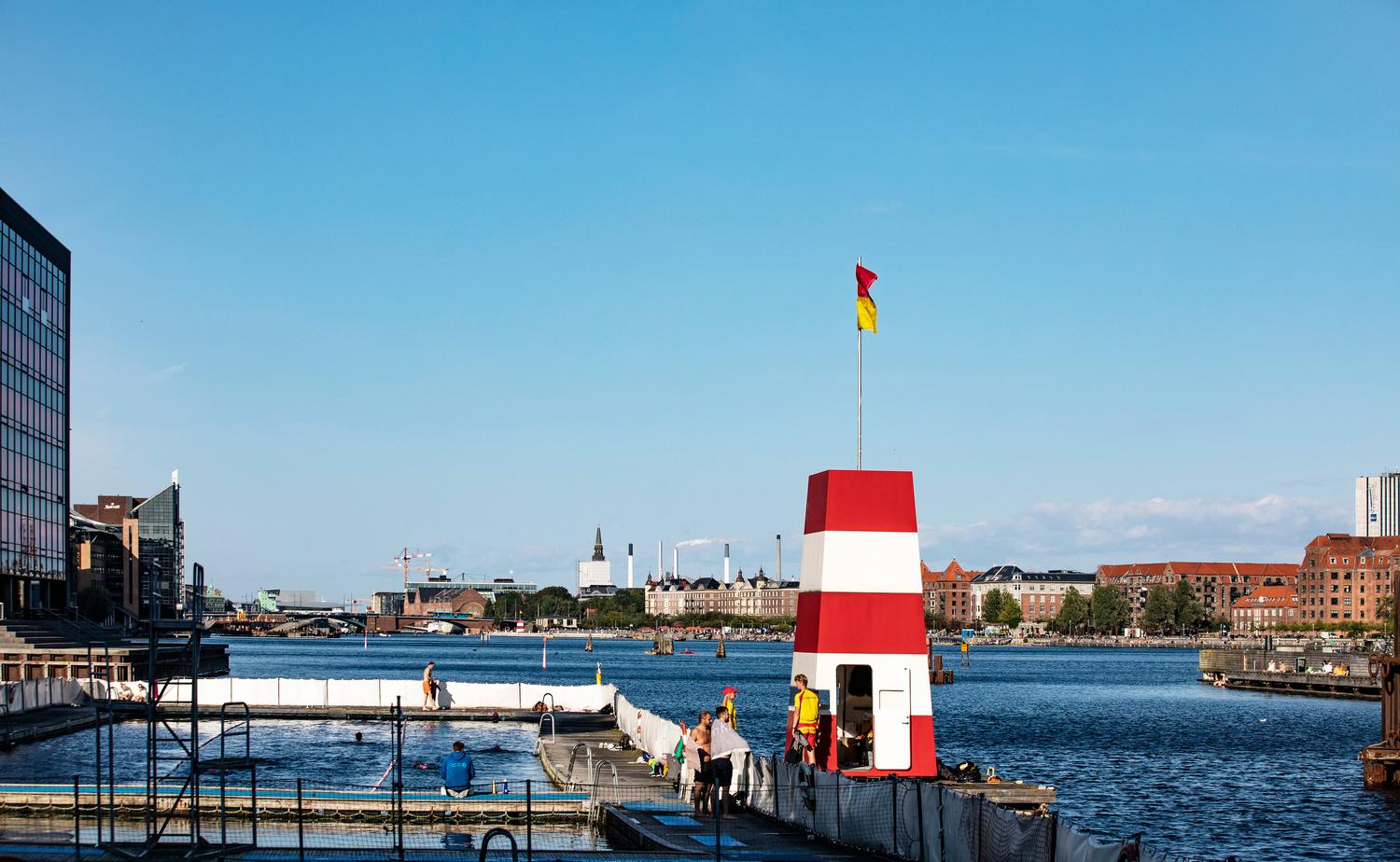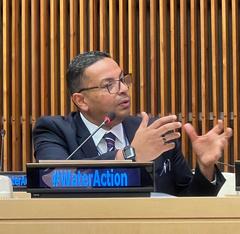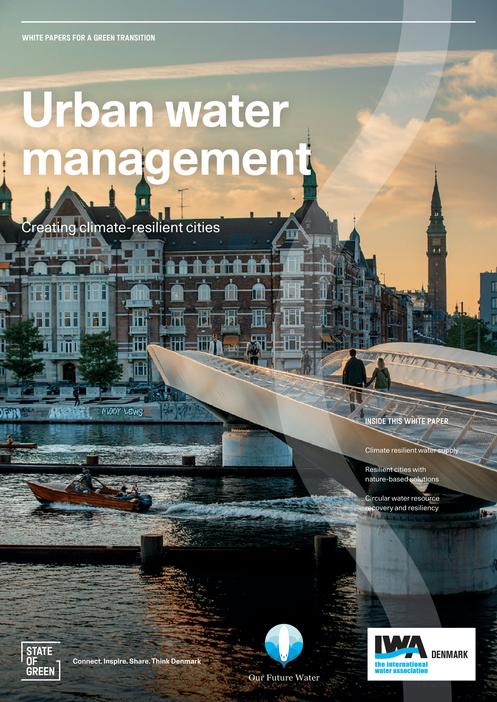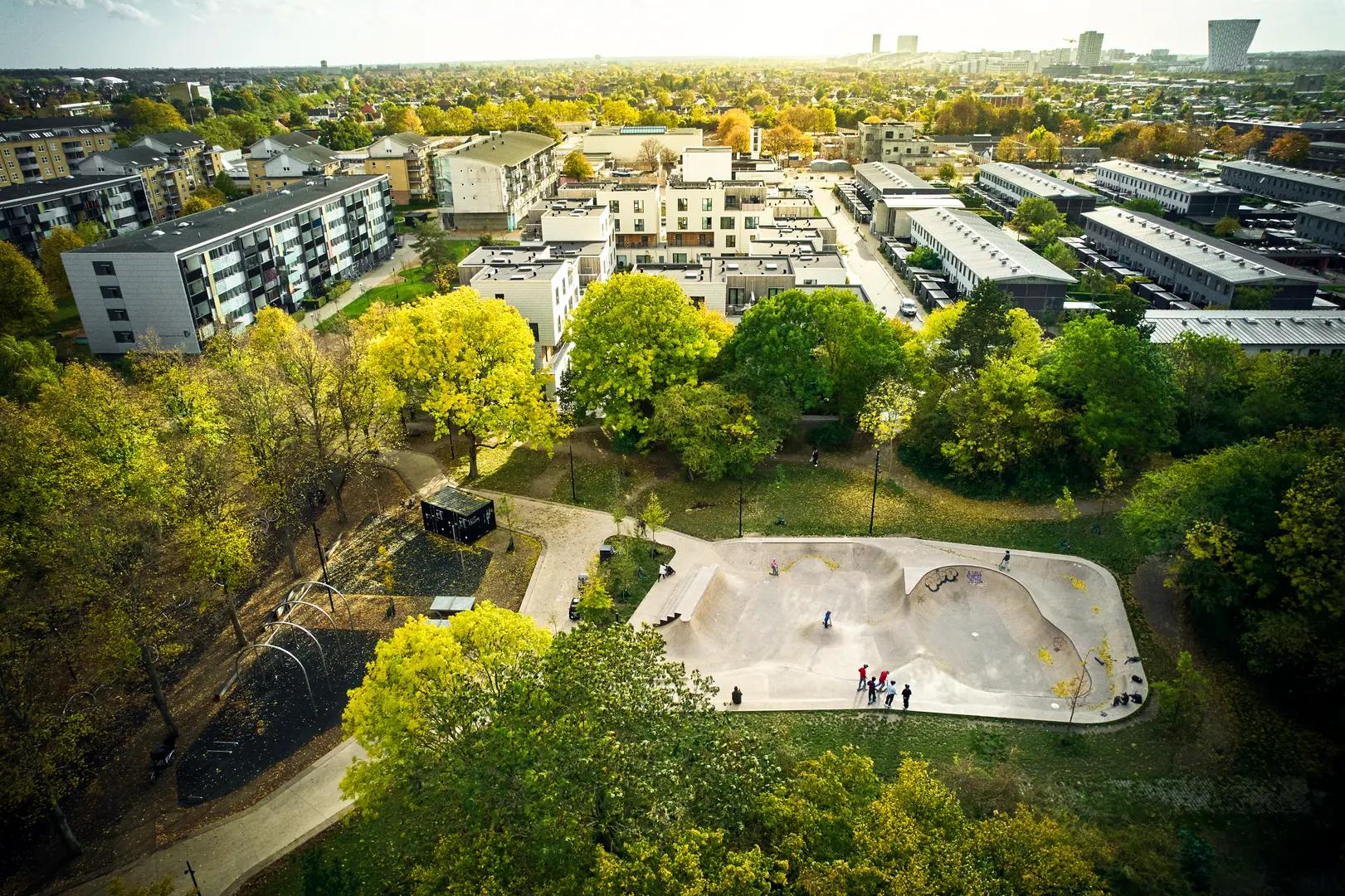Adapting to a future of extremes: Green, grey and hybrid solutions


Climate change adaptation efforts and experiences from Europe and the Asia Pacific

Online 25 May 2023 Credit:Ramboll
Background
Adapting to a future of extremes: Green, grey and hybrid solutions
How dual-purpose solutions to climate extremes can provide greater value
Cities around the world increasingly face the adverse effects of climate change, including rising sea levels, climbing temperatures, longer periods of drought and stronger storms. When combining these phenomena with the challenges of increasing urbanisation and the fact that most cities have extensive areas of impermeable surfaces, the need for rethinking urban water management is clear.
In 2022, Europe received the hottest temperatures on record and saw some of the most damaging floods in Italy particularly, the year before that Germany was the country most severely hit. This leaves one thinking, which country will be the hardest hit in 2023? As we look further into 2023, and the possibility of ever-increasing numbers of climate-induced urban disasters, we need to keep conversations going on what innovative solutions and understandings of the climate challenge are currently on offer.
Climate adaptation seeks to lower the risks posed by the consequences of climate change, including flooding that arises from extreme rain events. Over the next decade, countries around the world from Europe to Asia Pacific will need to invest heavily in adapting their cities to climate changes and adapting to future water scarcity. A key aim is to combine climate change adaptation with urban development and gain greater value. Instead of expanding the underground sewage system, municipalities and utilities are collaborating on making dual-purpose solutions.
In this respect, Nature Based Solutions (NBS) can play a key role in urban water management, adapting to too much and too little water whilst building cities that are attractive for people to live, work and play in.
Introduction
This online session will highlight the climate change adaptation efforts and experiences from Europe and the Asia Pacific, as well as highlight some of the innovative solutions for cities to future risks and challenges as a result of climate change.
State of Green is your onestop-shop to more than 600 Danish businesses, agencies, academic institutions, experts and researchers. State of Green connects you with leading Danish players working to drive the global transition to a sustainable, low-carbon, resource-efficient society.
By bridging communities, generating and disseminating knowledge and advocating for water education at all levels, Our Future Water has been created to ensure water security for today’s and future generations

Time 25 may 14.30 - 16.00 SGT / 8 30 - 10 00 CEST Online
ZOOM
Green Insights
Moderator
Robert C. Brears, Founder, Our Future Water

Robert C Brears is the founder of Our Future Water and an International Sectoral Expert (Water) Consultant with the UN's Green Climate Fund He is the author of 14 books, including Financing Water Security and Green Growth, published by Oxford University Press He is the Editor in Chief of the Palgrave Handbook of Urban and Regional Futures (Springer Nature)
Case presenters
Lykke Leonardsen

Program director for Resilient and Sustainable City Solutions, City of Copenhagen

Lykke is not just working to change her own city, but also helping other cities change. She was the key driver for the work on climate change adaptation, the development of the adaptation plan and the cloudburst management plan and the first steps towards a storm surge plan in Copenhagen and is currently focusing on sharing her city’s climate results with other cities around the world. Lykke loves working with cities – she loves

Green Insights
Panellists
Pritha Hariram Climate Resilient Infrastructure Development & Finance Specialist, Ramboll

Pritha Hariram is the Head of the Water Infrastructure and Climate Adaptation department at Ramboll Singapore covering the Asia Pacific Region. Prior to joining Ramboll, Pritha led the development and financing of bankable water and urban infrastructure projects for the Dutch Development Financial Institution, FMO across Asia, Africa and Latin America. Other positions held by Pritha, was the global lead for the Water Supply and Sanitation Services program at the International Water Association (IWA) and Urban Development Specialist with the Asian Development Bank where her primary role was to lead the identification, development, implementation and administration of large loans and grants for urban water and infrastructure programs in South Asia. Pritha is an experienced environmental engineer with over 20 years of experience in the planning, design and management of urban water systems to safeguard public health and build resilience to climate change. Over half of her career has been dedicated in accelerating finance across the value chain to ensure access to resilient urban infrastructure.
Dr Amgad Elmahdi Water Sector Lead, UNFCCC’s Green Climate Fund



Dr Amgad Elmahdi is a senior executive manager with more than 25 years of experience in hydrology, water, and natural resources management, as well as water information management. He has held diverse roles in research, development, operations, and financing, from which he brings a deep understanding of integrated water and natural resources management, Nexus design, and climate finance. With the Green Climate Fund, he is responsible for the expansion and evolution of GCF’s water sector and wider organization policies, working closely with accredited entities, nationally designated authorities and other stakeholders.
Jason Mingo Manager of Liveable Communities, Water Services Association of Australia

Jason Mingo is the Manager of Liveable Communities at Water Services Association of Australia (WSAA), where he leads the program on water's role in next generation cities. He has a post-graduate degree in both Environmental Science and Freshwater Ecology from the University of Cape Town and has followed his passion for water management throughout his career. He has a strong background in environmental sector non-profit organisations and values the power of community engagement in driving change. Previously, he was a Task Manager for the Western Cape Government, where he was involved in policy development, project planning and implementation of innovative and sustainable practices for water management at a provincial level. He is also a Research Advisory Committee member for The Water Tower, a non-profit organisation that provides research and innovation services for the water industry. Jason is an advocate of design and systems thinking and applies alternative approaches and innovative thinking in dealing with future challenges facing the water sector.

Program
Please note the following times are Singapore Time
Adapting to a future of extremes: Green, grey and hybrid solutions
14:30
Green Insights begins: Welcome and introduction
by Malene Bering Beitzel, Project Manager - Water & Climate Adaptation, State of Green and Robert C Brears, Founder, Our Future Water
14:35
Setting the scene: Adapting to a future of extremes - Green, grey and hybrid solutions
14:50
By Pritha Hariram, Climate
Resilient
Infrastructure Development & Finance Specialist, Ramboll
Case presentation: Copenhagen's Cloudburst Management Plan
By Lykke Leonardsen, Program director for Resilient and Sustainable City Solutions, City of Copenhagen
15:00 Case presentation: Maintaining liveability in Sydney
By Greg Ingleton, Segment Manager – Circular Economy,
Development, Sydney Water
15:10
Panel discussion:
15:40
15:50
16:00
Western Sydney
How can we effectively integrate nature-based solutions into urban water management to create resilient and sustainable cities while ensuring they remain attractive and liveable environments for residents and businesses?
Q&A
Sum-up and closing remarks by moderator
End of online event
Please note this programme is in SingaporeTime
Program
Please note the following times are Central European Summer Time
Adapting to a future of extremes: Green, grey and hybrid solutions
8:30
Green Insights begins: Welcome and introduction
by Malene Bering Beitzel, Project Manager - Water & Climate Adaptation, State of Green and Robert C Brears, Founder, Our Future Water
8:35
Setting the scene: Adapting to a future of extremes - Green, grey and hybrid solutions
By Pritha Hariram, Climate Resilient Infrastructure Development & Finance Specialist, Ramboll
8:50
Case presentation: Copenhagen's Cloudburst Management Plan
By Lykke Leonardsen, Program director for Resilient and Sustainable City Solutions, City of Copenhagen
9:00 Case presentation: Maintaining liveability in Sydney
By Greg Ingleton, Segment Manager – Circular Economy, Western Sydney Development, Sydney Water
9:10
Panel discussion:
How can we effectively integrate nature-based solutions into urban water management to create resilient and sustainable cities while ensuring they remain attractive and liveable environments for residents and businesses?
9:40
Q&A
9:50 10:00
Sum-up and closing remarks by moderator
End of online event
Please note this programme is in Central European Summer Time
Credit:Ramboll
Learn
Urban water management


Download publication
In this State of Green podcast, we explore Danish perspectives on the challenges of the global green transition. Through decades of experience, Denmark has turned many of these challenges into opportunities By sharing these experiences, we hope to help you do the same

Understand how managed aquifer recharge can help build a more resilient water supply and the many benefits to adopting nature-based solutions in creating resilient cities. Learn how thinking holistically about wastewater as a resource can yield both energy and natural resources more
Listen to Sound of Green – Stories from Denmark’s green transition
Read more and listen
 Credit:Ramboll
Credit:Ramboll



Credit:Ramboll


















 Credit:Ramboll
Credit:Ramboll
